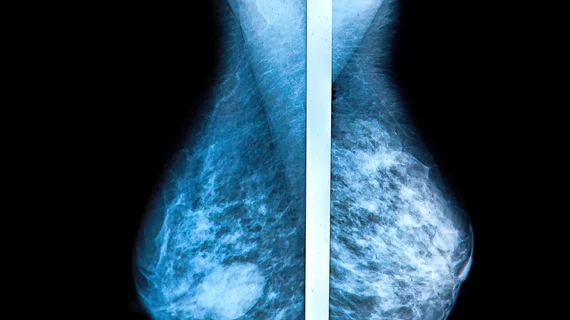Molecular markers of cancer classified with AI
AI and deep learning can extract molecular markets of breast cancer from tissue morphology and assist pathologists in a mass-scale molecular profiling, according to new research published in JAMA Network Open.
Researchers studied tissue microarray hematoxylin-eosin-stained images from more than 5,000 breast cancer patients. Using a deep learning model, researchers could profile cancer molecules with “practically no added cost and time,” lead author Gil Shamai, MSc, of the department of electrical engineering at Technion Israel Institute of Technology in Haifa, Israel, et al. wrote.
Typically, identification of molecular markers in tissues has relied on chemical processes, but it is time consuming, costly and highly dependent on expert laboratory technicians, reagents and tissue handling protocols, the authors wrote. The process is also up for debate in terms of its accuracy and relies on subjective interpretation.
With the deep learning model, researchers developed a computerized system to predict the molecular markers of cancer by analyzing tissue histomorphology. The system was able to find assayed biomarkers had identifiable features.
“Biomarkers that were more likely to be influential in the biology of breast cancer had the highest prediction accuracies,” Shamai and colleagues wrote, adding that the finding adds to the credibility of the results.
Researchers see the results as promising for the machine learning method, called morphological-based molecular profiling, to serve as a tool for physicians to guide therapies and drug treatments for cancer.

